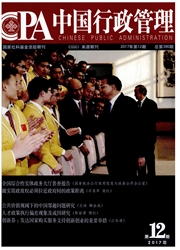

 中文摘要:
中文摘要:
医疗费用的持续过快增长是世界性难题。"看病贵"和"看病难"是长期困扰中国医疗服务的痼疾。卫生政策研究和卫生经济学一般认为,有效控制医疗费用需要用经济手段调整供方的激励机制结合一定的需方控制来实现。而福建省则提供了另外一种可能。该省自2005年开始,由卫生厅领导,展开了一场通过行政手段控制医药费用过快增长的政策行动。通过有针对性的政策设计和不懈的政策调整,在很大程度上遏制住了医药费用超常规增长的趋势。本文通过对福建经验的分析指出,要通过行政手段控制医疗费用过快增长,一是需要政府的政治支持和卫生部门的政策决心,二是通过对各种政策工具的充分发动和合理配置。国家卫生部已将全面控费作为2011年的重点工作,对福建经验加以深入研究,具有重要的理论和实践意义。
 英文摘要:
英文摘要:
The healthcare cost rapid inflation has become one of worldwide difficulties."The medical treatment is hard to access and hard to afford" has long been a chronic illness for Chinese healthcare services.Hygienic policy research and hygienic economics generally consider that effective control of healthcare cost needs can be realized by combining providers stimulation mechanism adjustment with demanders control using economic means.However,Fujian Province provided another possibility that the government used an administrative means to control the healthcare cost rapid inflation since 2005,which controlled the abnormal trend of healthcare cost inflation.By analyzing the experience of Fujian Province,this paper pointed out that the government's political support,the hygienic department's policy decision,and the utmost use and rational allocation of various policy tools are important for the control.Deep research into the Fujian experience has theoretical and practical significance.
 同期刊论文项目
同期刊论文项目
 同项目期刊论文
同项目期刊论文
 期刊信息
期刊信息
